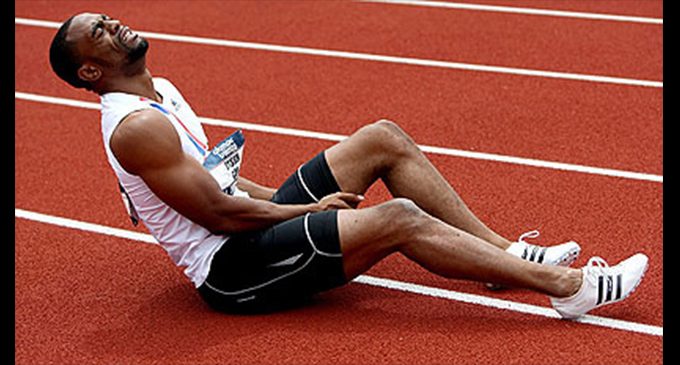Coaches play a major role when it comes to injuries

I watch a lot of sports shows across various networks to see what people are discussing. I recently came across a discussion involving the Kevin Durant Achilles injury. They spoke about how they felt Durant was pressured to return before he was ready and that led me to think about how that pressure can affect a player on the collegiate and high school levels.
Durant just opted out of a $31.5 million option for next year and is in line to sign a contract over $220 million this offseason. For a player of his caliber to feel pressured to play, I know the pressure for an injured player to play is multiplied tenfold.
I feel the pressure to perform for Durant was more of him wanting to help his team who was struggling, rather than a coach putting pressure on him to go out there and play before he was ready.
On the collegiate and high school levels, I know for a fact that players go out and perform to the best of their abilities even though they probably should not. I asked several athletes from different sports if they have ever had a coach pressure them to perform while they were hurt. The answers I received were not shocking.
I personally have experienced being subtly pressured to perform by a coach. During my sophomore year, my 4×4 team qualified for the national championship meet. Toward the end of the season, I began to develop very painful shin splints. I informed my coach of my pain, but instead of him sending me to the training staff, he basically told me if I was too hurt to run, he would find another athlete to replace me.
After putting in countless hours of practice, weightlifting and training, it was inconceivable for me to allow another runner to reap the benefits of my season of hard work. I sucked it up and popped anti-inflammatory pills like Skittles in order to perform. Should I have rested? Yes, but what other choice did I have in that instance? No, I did not perform the best, but those opportunities do not come around often, so I had to do what I had to do.
I spoke with a former offensive lineman from a local university. He said there was not really any pressure for him to perform while injured or hurt, because he was clear and above the best player at his position. Whenever he returned to the field, his position was guaranteed, but that could not be said for all players.
“There was never any question about my spot on the field,” he said. “It didn’t matter if I rolled an ankle or had a concussion, if I had to sit out a game, whenever I returned my position was my position. The coaches basically told me to get back when I could.
“On the other hand, for players who were fighting for playing time, missing any time in practice or the game was not in their best interest. Not saying a coach pressured them, but it was a well-known fact that if you were not a star player or guaranteed starter, you find a way to get on the field.”
I also spoke with a former gymnast who was very open about her time on the mat. She wanted to make sure people know that even though gymnastics is technically not a contact sport, the injuries she received while active were very reminiscent of a contact sport.
Concussions, sprained ankles, torn hamstring, torn rotator cuff and multiple bone bruises were some of the injuries she received while active in the sport. Those injuries sound more like they come from a football player, not a gymnast. She stated she has felt pressured to perform from one coach, but most of her coaches were very supportive in her rehabilitation from injuries.
“I wouldn’t say that I was ever pressured to perform, so to speak,” she said. “I did have a coach on the youth level that tried to guilt trip me into performing. He would say things like ‘I know your teammates would fight through that, but I guess you aren’t as tough as them’ and things like that. But he was the exception, because all of my other coaches never did anything like that to me.”
Playing through pain is a small part of playing sports. Anyone who has ever played a sport has had to endure it, but if a coach has ever pressured a kid to play, he/she is wrong. I am glad that the majority of people I spoke with said they have not had to deal with much of that. I know that coaches are under pressure to win, but to put a player’s future in jeopardy by playing when they shouldn’t is not the way to go.
On the non-professional level of sports, coaches hold a lot of power when it comes to their players. They can dictate playing time, position and even what level you play on. All those factors can determine whether or not a kid gets a scholarship or even if they have enough tape for pro scouts to evaluate. My hope is that coaches are using their power to do what’s best for the kid and not themselves.









